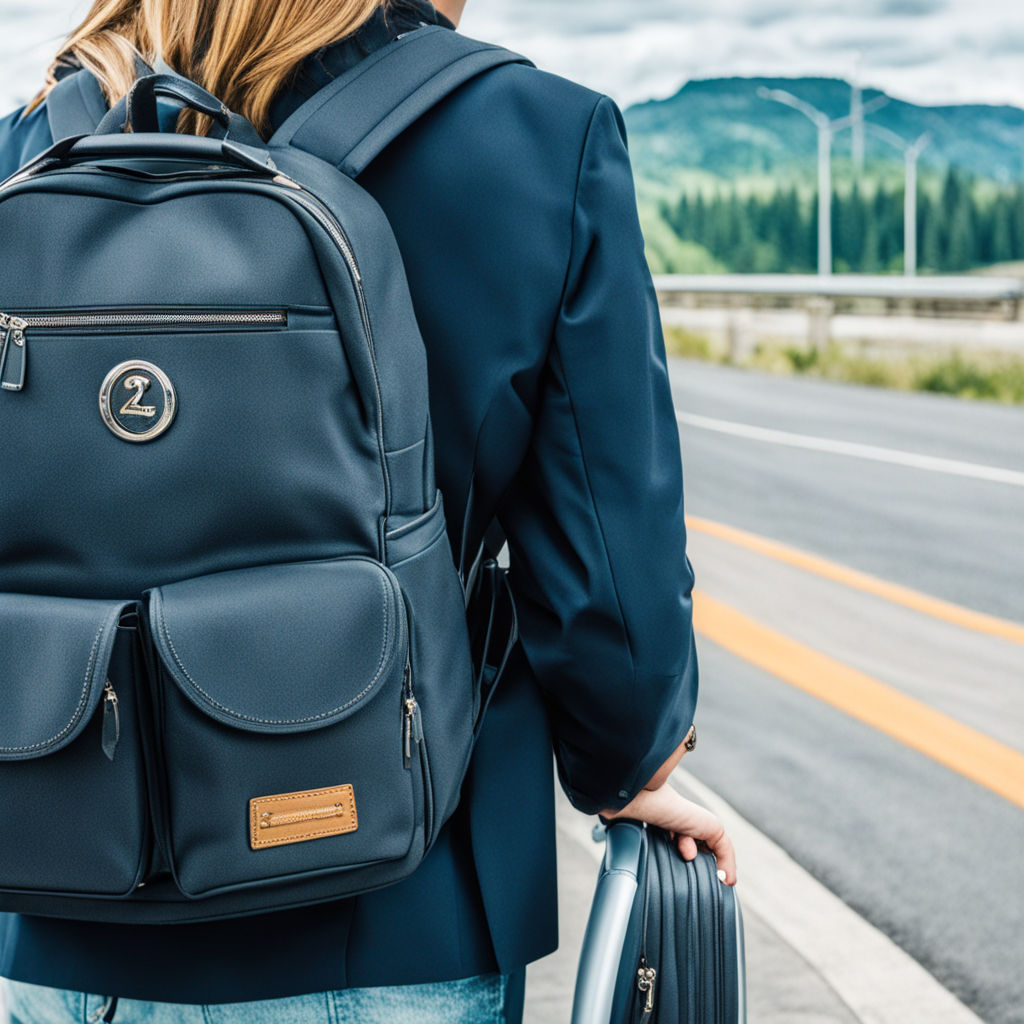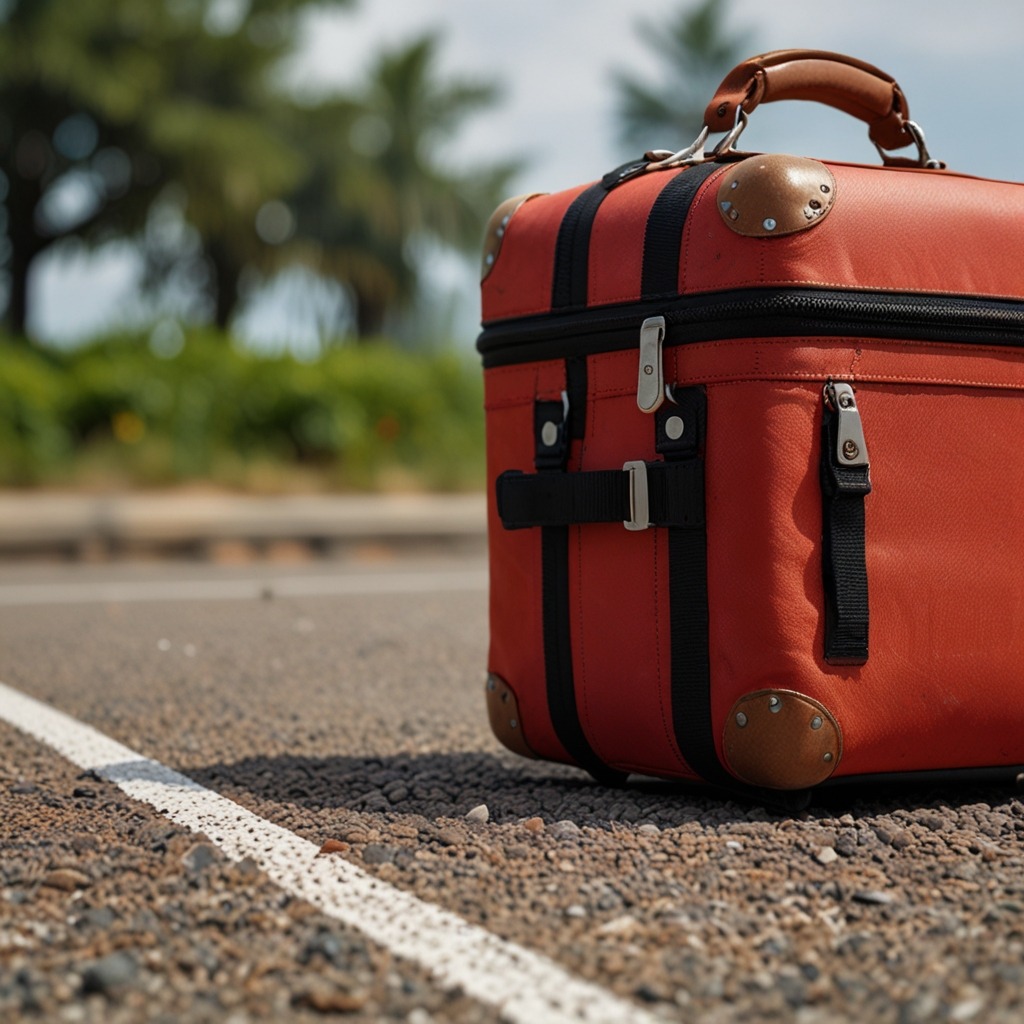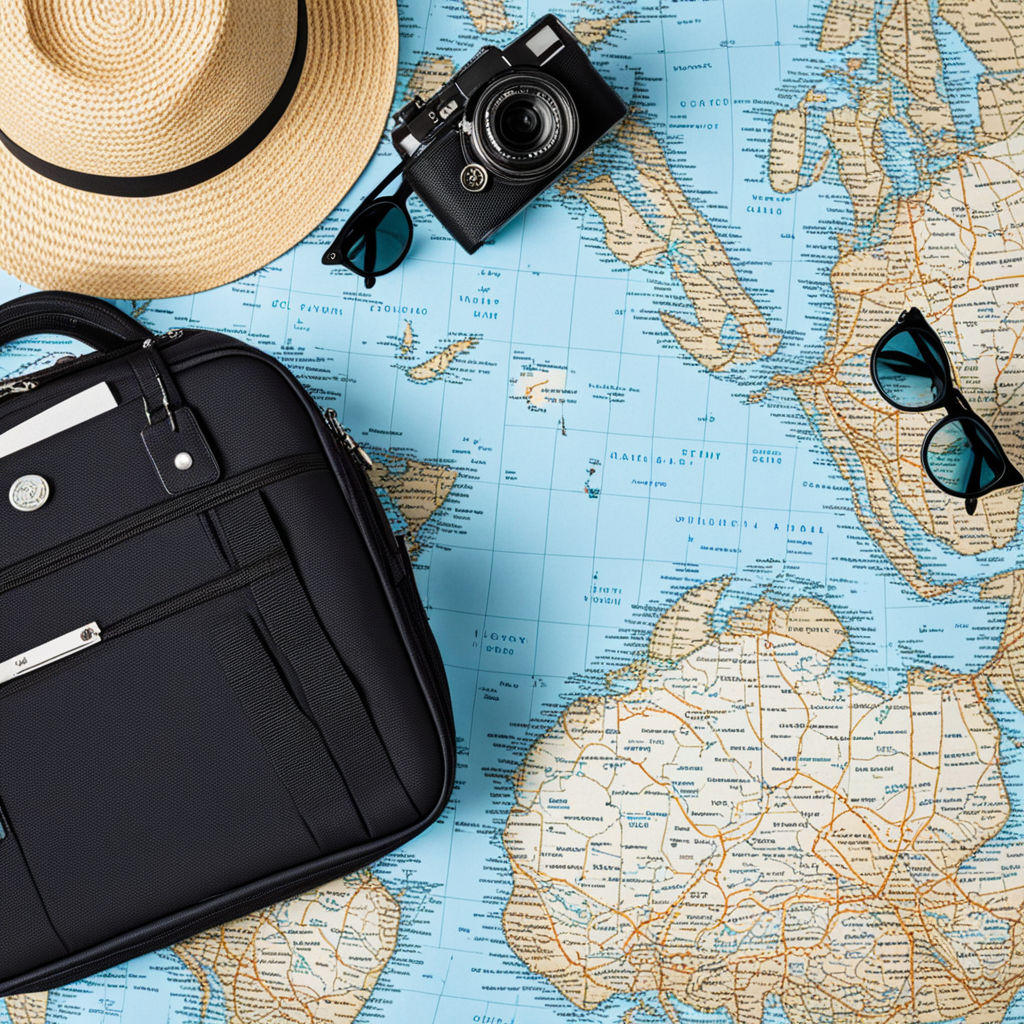
Introduction: The Importance of Travel Safety
Traveling is an exciting adventure, offering new experiences and memories that last a lifetime. However, to fully enjoy your journey, it’s essential to prioritize safety. Whether you’re exploring a bustling city or relaxing on a remote beach, being aware of potential risks and knowing how to mitigate them can make all the difference.
Common travel risks include theft, health issues, and unexpected accidents. For instance, pickpocketing is a frequent problem in tourist hotspots, but by staying vigilant and using secure bags, you can significantly reduce the risk. Similarly, ensuring you have travel insurance and knowledge of local emergency services can help you handle health concerns or accidents swiftly and effectively.
Approaching your trip with a proactive mindset not only protects you but also enhances your travel experience. By planning ahead, staying informed, and taking necessary precautions, you can focus on what really matters—enjoying your adventure to the fullest. For more detailed safety tips and travel resources, consider checking out this guide on staying safe while traveling and this article on common travel risks and how to avoid them.
Pre-Travel Preparations
Research Your Destination
Before you pack your bags, it’s essential to thoroughly research your destination. Understanding the local laws, customs, and potential risks not only helps you avoid legal troubles but also ensures you respect the culture of the place you’re visiting. For example, some countries have strict dress codes or rules about public behavior that might differ significantly from what you’re used to. Familiarizing yourself with these aspects can prevent unintentional offenses and make your trip smoother. To get started, you can check out this resource on understanding local laws and customs, which offers detailed information about different countries.
Check Travel Advisories
Staying updated on travel advisories is another crucial step. Governments often issue travel warnings for specific regions based on safety concerns like political unrest, natural disasters, or health epidemics. Checking these advisories before you go can help you avoid dangerous situations and adjust your plans if necessary. The U.S. Department of State’s travel advisories page is a reliable source for current information on your destination.
Health Precautions
Your health is paramount when traveling, so taking the right precautions is vital. Start by checking if you need any vaccinations for your destination. Some countries require proof of certain vaccinations upon entry. Additionally, securing comprehensive travel health insurance can save you from hefty medical bills abroad. It’s also wise to research the local healthcare options and know where to find medical help if needed. Websites like CDC’s travel health page offer valuable insights into necessary vaccinations and health advice for travelers.
Packing Essentials for Safety
Travel Documents
Your travel documents are the most critical items to keep safe during your trip. Make sure to have copies of your passport, visa, and any other important identification. Store the originals in a secure place, like a hotel safe, and carry the copies with you. It’s also a good idea to have digital copies saved in a secure cloud storage service that you can access if your physical documents are lost or stolen. For more tips on safeguarding your documents, this guide on managing travel documents is a great resource.
Emergency Contact Information
Having a list of emergency contacts is another safety must-have. Include phone numbers for local embassies, your country’s consulate, and emergency services. Also, add contacts for your travel insurance provider and any local contacts you might have. Keep a physical copy of this list with you at all times, and save it digitally as well. Knowing who to call in case of an emergency can save valuable time and ensure you get the help you need quickly. You can find useful information on preparing your emergency contact list here.
First Aid Kit and Medications
A well-stocked first aid kit is an essential part of any travel bag. Include basic items like bandages, antiseptic wipes, pain relievers, and any prescription medications you take regularly. It’s also smart to bring along remedies for common travel ailments like motion sickness, upset stomach, or allergies. Having these supplies on hand can help you handle minor injuries and health issues without needing to find a pharmacy in an unfamiliar place. For a detailed list of what to include in your travel first aid kit, check out this first aid packing list.
Security Gadgets
To enhance your travel security, consider packing a few key gadgets. Portable safes can secure your valuables in your hotel room, while RFID-blocking wallets protect your credit cards from digital theft. Personal alarms are also useful, providing a loud noise that can deter potential thieves or attract attention in an emergency. These items are small but can significantly increase your peace of mind while traveling. For more ideas on essential security gadgets, explore this list of top travel security devices.
On-the-Go Safety Tips
Stay Aware of Your Surroundings
One of the most effective ways to stay safe while traveling is to remain aware of your surroundings. This means keeping an eye out for anything that seems unusual or out of place. Trust your instincts—if something doesn’t feel right, it’s best to move to a safer location. Avoid distractions like staring at your phone while walking, and try to familiarize yourself with your surroundings, such as knowing where the nearest exits are or identifying safe places to retreat if necessary. This guide on situational awareness offers practical tips on how to stay alert and safe in unfamiliar environments.
Use Reliable Transportation

When it comes to transportation, safety should always be a top priority. Whether you’re using taxis, rideshares, or public transport, it’s important to choose reliable options. For taxis and rideshares, ensure the vehicle and driver match the description provided by the app, and avoid accepting rides from unlicensed drivers. When using public transport, stay aware of your belongings and be cautious during busy times when pickpocketing is more common. For more detailed advice on choosing safe transportation, consider reading this article on travel transport safety.
Secure Your Belongings
Protecting your valuables while traveling requires a combination of vigilance and smart storage. Use anti-theft bags or backpacks with lockable zippers, and keep your bag in front of you, especially in crowded places. When in your hotel room, use the room safe or a portable safe for your most valuable items. Avoid carrying all your cash or cards in one place—split them between your wallet, a money belt, or a secure pocket. For more strategies on safeguarding your belongings, this guide on travel safety and theft prevention is highly recommended.
Blending In
Blending in with the locals can be an effective way to avoid drawing unwanted attention. Dress appropriately for the culture and environment, avoiding flashy clothing or expensive accessories that might mark you as a target for thieves. Try to adopt local customs and mannerisms, and avoid loud or overly touristy behavior. The less you stand out, the safer you’ll be.
Digital Safety While Traveling
Protect Your Devices
In our increasingly connected world, keeping your digital devices secure while traveling internationally is crucial. Start by using a Virtual Private Network (VPN) to encrypt your internet connection, especially when accessing sensitive information like banking or work emails. Avoid using public Wi-Fi networks, which are often unsecured and can expose your data to hackers. Instead, connect through a mobile hotspot or a trusted network. Additionally, ensure that your devices are password-protected, and enable features like remote wiping in case they are lost or stolen. To learn more about digital safety, check out this guide on securing your devices while traveling.
Backup Important Information
Backing up your important information before embarking on an international trip is a critical step in your travel safety plan. Store copies of essential documents, photos, and any critical data in a secure cloud storage service. This ensures that even if your devices are compromised, you can still access your information from another device. Companies that offer cloud services often have robust security measures, making them a reliable option for protecting your data. Explore different cloud storage options here and choose a plan that suits your needs.
Social Media Caution
While it might be tempting to share every moment of your trip online, oversharing on social media can put you at risk. Posting real-time updates about your location or sharing details about your travel plans can make you a target for theft or other malicious activities. It’s wiser to share your experiences after you’ve returned home. Additionally, review your privacy settings and limit who can see your posts, particularly when traveling internationally. Following a company’s social media policy regarding travel is also essential to ensure that your posts do not inadvertently reveal sensitive information. For more on staying safe online, take a look at this article on social media safety tips.
Accommodation Safety
Choosing Safe Lodging
When planning your international trip, selecting safe lodging is a top priority. Look for hotels or rentals with strong security measures, such as 24-hour front desk service, key card access, and well-lit common areas. Reading reviews from other travelers can provide insights into the safety of the accommodation. Additionally, some companies offer loyalty programs that include enhanced security features, such as room upgrades in more secure areas of the property.
Before booking, it’s also wise to familiarize yourself with the hotel or rental’s safety policies and emergency procedures. For more tips on choosing secure lodging, you can refer to this guide on selecting safe accommodations.
Room Security
Once you’ve chosen your lodging, securing your room is the next important step in your safety plan. Always lock the doors and windows, even when you’re inside. Utilize additional security devices like portable door locks or doorstop alarms for added peace of mind. It’s also advisable to keep the “Do Not Disturb” sign on your door when you’re out, as it can deter potential thieves. In case of an emergency, know the location of the nearest exits and have a plan in place for how to leave the building quickly. Some companies offer programs that provide travelers with emergency response services, which can be a valuable resource if you encounter issues during your stay. For more on room security, check out this article on securing your hotel room.
Safe Socializing
Meeting new people is one of the joys of traveling, but it’s important to do so safely. When socializing, especially with strangers, stick to public areas and avoid sharing too much personal information. If you plan to meet someone, let a trusted person know where you’ll be and who you’re meeting. Additionally, be cautious about accepting invitations to private spaces or drinks from people you don’t know well. Some companies offer safety programs that include socializing tips and resources for staying secure while interacting with others abroad. To learn more about safe socializing, consider reading this guide on socializing safely while traveling.
Emergency Preparedness
When traveling, being prepared for emergencies is just as important as planning your itinerary. Whether it’s dealing with theft, a medical emergency, or the need to evacuate quickly, knowing what to do can make a significant difference in how well you handle the situation. Here’s a comprehensive guide to ensure you’re ready for any unexpected events during your travels.
What to Do in Case of Theft
Theft is an unfortunate reality that can occur anywhere, especially in busy tourist areas. If your belongings are stolen while traveling, staying calm and taking prompt action is essential. First, report the theft to the local authorities immediately. Having a police report is often required for insurance claims and can help in the recovery of stolen items. Be sure to ask for a copy of the report and get the contact details of the officer handling your case.
Next, contact your embassy or consulate if important documents like your passport were stolen. They can assist with issuing a replacement and provide guidance on what to do next. It’s also crucial to notify your bank and credit card companies to prevent unauthorized transactions. Most banks offer emergency programs that can issue temporary cards or send funds while you’re abroad. For those enrolled in international travel insurance programs, this is the time to contact them to initiate a claim for any stolen items or expenses incurred due to the theft. Policies often cover lost luggage, electronics, and other valuable items, so reviewing your coverage beforehand can help you understand what’s included.
Finally, consider what you can do to prevent further incidents. If your accommodation has a safe, use it to store valuable items that you don’t need to carry with you. And, as a general rule, avoid flashing expensive items like jewelry or electronics, as this can attract thieves.
Familiarizing yourself with common scams in the area you’re visiting can also help you stay vigilant.
Handling Medical Emergencies
Medical emergencies are another situation that travelers must be prepared for, especially when abroad. The first step is to know where to find medical care in the area you’re visiting. Research the location of nearby hospitals, clinics, and pharmacies before your trip. Many travel insurance programs provide access to international networks of doctors and hospitals, along with 24/7 emergency assistance hotlines. Having this information handy can save valuable time in an emergency.
If you’re in a situation where you need immediate medical attention, don’t hesitate to call the local emergency services. Keep a list of emergency numbers for each country you visit, as they often differ from those at home. If you’re in a non-English-speaking country, having a basic understanding of local phrases related to medical needs or using a translation app can be incredibly helpful.
For less urgent medical issues, like minor injuries or illnesses, a local pharmacy might be able to provide the necessary medications or advice. However, if you require more significant treatment, go to the nearest hospital. If you’re enrolled in an international health insurance plan, it’s vital to understand how to use it. Some plans may require pre-authorization for treatment or may only cover certain hospitals. Contact your insurance provider as soon as possible to ensure you follow the correct procedures.
In addition, always carry a basic first aid kit with you, including any prescription medications you regularly take, and ensure they are stored correctly, especially in extreme climates. It’s also wise to have copies of your prescriptions in case you need to replace your medication while traveling. Knowing the generic names of your medications can be helpful, as brand names often differ by country.
Emergency Exits and Evacuation Plans
Lastly, being prepared for emergency exits and evacuation plans is a critical component of travel safety. When you arrive at any accommodation—whether it’s a hotel, rental, or even a cruise ship—take a moment to familiarize yourself with the nearest exits. Knowing how to quickly and safely exit a building in case of fire, earthquake, or other emergencies can be lifesaving.
Hotels and other accommodations often have emergency exit maps posted on the back of room doors or in common areas. Review these upon arrival and ensure you know the route to the nearest exit. If you’re staying in a high-rise building, locate the nearest stairwell, as elevators may not be operational during an emergency. Additionally, some international travel programs offer evacuation assistance, which can be invaluable in cases of political unrest or natural disasters. Understanding your policy’s coverage and having the program’s contact information readily available can help ensure a quick and organized evacuation if necessary.
If you’re traveling in a region prone to natural disasters, such as hurricanes, earthquakes, or floods, it’s essential to have a plan in place. Monitor local news and weather reports, and follow any advisories or evacuation orders issued by local authorities. It’s also smart to keep an emergency kit with essentials like water, snacks, a flashlight, and a small amount of cash.
For those traveling with a group, establish a meeting point in case you’re separated during an evacuation. Ensure everyone knows the location and how to get there. If you’re traveling alone, let someone back home know your plans, including where you’re staying and your itinerary, so they can assist in coordinating an evacuation if necessary.
